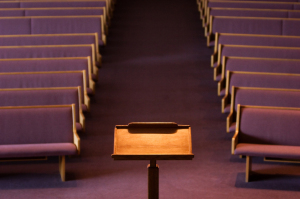Girls raped, face life of sexual exploitation after dedication to Hindu goddess

An Indian woman described how she was routinely sexually assaulted as part of a socially accepted Hindu practice called “Devadasi,” which involves parents coercing their young daughters into an elaborate wedding ritual with a Hindu deity followed by a life of prostitution. The centuries-old practice has long been condemned by organizations dedicated to the eradication of sexual exploitation and slavery.
The woman, who was raised in the south Indian state of Karnataka, recounted how girls, called Devadasis, are required to live a life dedicated to Hinduism and are prohibited from marrying. At puberty or even earlier, they are forced to have sex with an older man in exchange for monetary compensation or gifts.
Two Devadasis, identified as Huvakka Bhimappa and Sitavva D. Jodatti, recounted their ordeal in a recent interview with AFP.
Bhimappa wasn't yet 10 years old when she was raped by her uncle and made a Devadasi.
The woman, who is now in her late 40s, said after her mother’s brother raped her, years of forced prostitution began. Her family profited off her sexual exploitation in the name of serving the Hindu goddess Yellamma.
Bhimappa eventually managed to leave her status as a Devadasi but has since experienced economic hardship and ostracization in her community. Due to her lack of education, she has only earned a daily wage of a dollar as a manual laborer.
“If I was not a Devadasi, I would have had a family and children and some money. I would have lived well,” she was quoted as saying.
The other woman, Jodatti, who is now 49, was forced into a life of sexual exploitation when she was 8 years old. Later, when her father fell ill, she was expected to allow men to violate her body to help pay for her father's treatments.
“By the age of 17, I had two kids,” she is quoted as saying.
The Exodus Road, a nonprofit dedicated to combatting human trafficking, says the Devadasi practice is illegal, yet it successfully draws thousands of young girls — some as young as 5 or 6 — into India’s sex trade every year.
According to India’s National Commission for Women, at least 44,000 Devadasis are active in India.
The actual number could be as high as a quarter million, says the nonprofit.
In 2017, Reuters estimated that India has about 20 million commercial sex workers, of which 16 million were female victims of sex trafficking.
The Devadasi system has been in existence for centuries in southern India and is deeply rooted in Hindu beliefs and social customs.
The Devadasi tradition originated in the sixth century when a queen from the Keshari Dynasty decided that accomplished women trained in classical dance should marry deities, the nonprofit says. These women were highly respected and considered goddesses themselves, tasked with caring for the temple, performing religious rituals, and dancing for royalty in the name of the goddess Yellamma.
However, it adds, with the arrival of Islamic rulers, Hindu temples were destroyed, resulting in the loss of patronage and social status for the Devadasis. Forced to find alternative work, dancing and prostitution became linked and the Devadasis became mistresses of priests, kings, and eventually wealthy landowners.



























